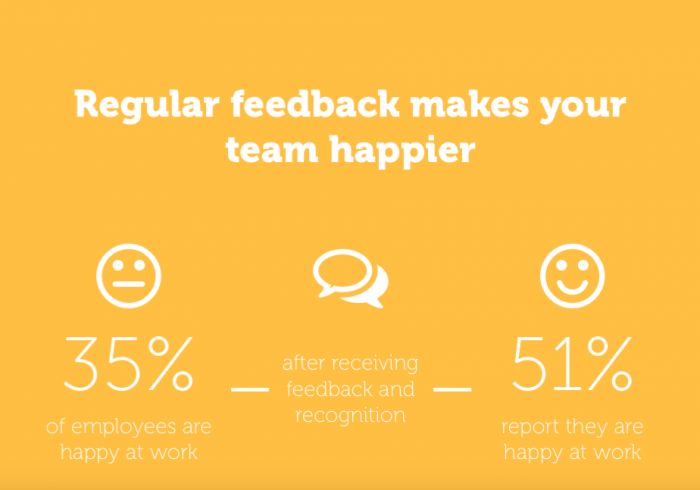
Businesses worldwide are jumping on the remote-work bandwagon. Employees and companies are leaning towards remote teams and work culture, thanks to countless advancements in technology and a global approach to talent acquisition and recognition. Hiring isn’t confined to a city, state, or country anymore and for all the right reasons.
However, just like any other company, there are obstacles to overcome with managing a remote team as well. Managing a remote team requires a different approach than managing a local team, why? The challenges are completely different.
For instance, we know how difficult it can be to stay productive in a home environment – there is always one distraction after another, especially with kids. This, however, is not the case in a traditional work environment, with colleagues, physical meetings and accountability, the productivity challenges are lower.
We’ll be looking at effective strategies that will be useful when considering how to manage a remote team, as trends are always changing.
Of course, all of this is only possible if your team members have great self-discipline. The Arc blog has written extensively on it. They say that: “there are also some unique challenges faced only by remote workers when it comes to self-discipline. As a manager of a remote team, you need to be aware of these challenges so you can spot them in advance.”
1. Set the right expectations
Managing expectations is important from both the managerial and employee perspective. The earlier this is done, the better. Expectations regarding working hours, availability, e-mail correspondence, meeting schedule, etc should be clarified right from the get-go.
This helps smooth out the organizational aspect and overcomes the challenges of miscommunication and daily scheduling in a remote environment. Overcoming these will make work-life smoother and more productive right from the beginning.
2. Invest in the right tools
Using the right tools is an important part of any work culture. With remote work, the dependency is higher. Since communication is a core aspect of a remote team, small hiccups can translate to large hassles. The right tools and the right knowledge of using the tools are crucial when it comes to managing a remote team.

Gone are the days when e-mail threads and excel sheets did the job, there are many tools in the market that help a remote team stay on top of their game. From video-calling software to internal communication platforms, using the right tools will solve many problems that come with managing a remote team. Here are some popular tools you may want to test out in your team.
3. Have regular communication
We cannot stress this enough. Communication is key in the world of remote team management. A manager should be aware of the progress of their team, whether on a daily or weekly basis. While daily updates are encouraged, weekly check-ins are a good way to analyze and understand the work process of the upcoming or previous week.
Daily updates are good for deadline management and tasks, but weekly check-ins help see the bigger picture. In a remote team, everyone faces a different work situation and, in such cases,, weekly updates are a good way to analyze progress and understand pain-points if any and work towards solving them.
Here are some additional tips for improving communication in a remote team.
4. Use feedback to motivate
Employees grow with feedback and constructive criticism. As someone who’s managing a remote team, the right comment at the right time can make all the difference. Using feedback as a motivation factor adds a level of personal touch to an otherwise impersonal work environment.
Schedule review meetings and chat with the employees while going through their work to give a sense of belonging and a healthy work relationship in what tends to be a ‘one-man-show’ for most remote employees.
5. Set goals
Focusing on setting and achieving goals rather than what work is being done by whom and when is the key to managing a remote team. One such goal-setting method is the Objective and Key Results or OKR methodology.
The basis of OKR is to have an Objective, decide on key results of success and have a plan to achieve the said results. This involves aligning the company, team and personal goals to achieve success together and is a great way of managing a remote team because of measurable success parameters and a defined Objective. Using OKR eliminates any ‘Telephone’ confusion and encourages communication and team building.
6. Develop a sense of trust
Without trust, there is nothing. In a remote team, trust is an important factor, whether it is trusting that an employee is doing their job or whether it is employees trusting their managers regarding organization and expectations.
Because of the lack of physical connection, it is difficult to create a sense of trust and hence, requires extra effort from both sides. As a manager, sometimes it is best to trust an employee rather than doubt their intentions or commitments and let the work speak for itself. This will garner a sense of trust among the employees and they’ll have a positive outlook towards work and the team.
7. Create a bond
In a physical work environment, there are plenty of opportunities to create a bond, whether by having a meal together or simply sitting next to one another. Obviously, this is not the case when it comes to a remote team, which is why it’s all the more important to create a bond within a remote team.
A simple ‘hi’ or ‘how was your day’ goes a long way. Taking a genuine interest in the employee’s well-being and personal life in a respectful and professional manner will make them feel valued and foster a deeper professional relationship.
Holding team building events is also another great way to build bonds. While you may not be able to have an off-site day, there are still plenty of ways to meet up and learn more about your team. Here are some virtual team building activities you can try out with your team.
8. Be flexible
The major reason why employees choose to work remotely is the flexibility it provides. As a manager, don’t fret over little details as long as they don’t interfere with the work. Employees don’t need to be micro-managed in any setting, especially a remote one.
Giving employees the flexibility and benefit of the doubt is a good way to encourage honesty, truthfulness and also loyalty towards the company.
9. Encourage learning
Employees don’t like to feel like they aren’t progressing or learning new skills. As a manager, it is important to create a culture that embraces and encourages learning. A good way to do so is to have video-coaching sessions with the remote team, once a week or month, to learn a new skill or work on any existing skills.
10. Develop online communication skills
Online meetings are vastly different than offline meetings. There could be connectivity issues, environmental disturbances, or any technical issues and when all’s said and done, online communication is difficult. While managing a remote team, it is important to be clear while communicating.
Written and verbal communication needs to be precise and easy to comprehend. Remote meetings can’t run like normal meetings as scheduling is a difficult task and issues are bound to pop up, hence developing and evolving online communication skills is of importance.
11. Prioritize productivity
A vital aspect of any team is being productive. Managing a remote team is not an exception to this rule. However, many managers tend to get tangled between work formalities and regulations while ignoring productivity. Using the previously mentioned OKR methodology, prioritize productivity when it comes to setting objectives and achieving the key metrics of goal-setting.

12. Learn the art of appreciation
Time and again, studies have shown the benefit of positive reinforcement. Many people who work remotely feel lonely and under-appreciated. The lack of human interaction and all that comes with it, special events, birthdays, small celebrations, etc is missing from a remote team.
Appreciating an employee and celebrating their (and the company’s) milestones has massive psychological benefits. Not only does it foster a sense of belonging but it makes the team feel valued, respected and appreciated. Remember, the company’s success is the team’s success, sharing it with the team and appreciating every member’s personal contribution gives them a sense of achievement and appreciation.
Wrapping it up
Managing a remote team is no easy task, however, following these tips will help create a framework to build a remote team management strategy. The benefits of the remote working environment shouldn’t be overshadowed by easy to overcome hurdles.
All that’s ultimately required is patience, respect, and communication.


